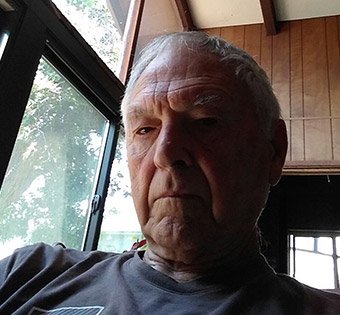
The field of electrical engineering in the mid-20th century was so exciting that Pittsburgh, Pennsylvania, native William Esser couldn’t wait the full four years to earn his degree from Ohio Northern. After enrolling at Dean Archer’s surveying course in the summer of 1955, Esser spent only three years in Ada before graduating with a bachelor of science in electrical engineering degree in 1958. From Ada, it was on to Los Angeles, California, where Esser began a 33-year career at Hughes Aircraft Co.
By the 1960s, Hughes Aircraft Co. was a leader in the electronics field. The company had invested in brilliant young scientists as electronics became more and more vital to aviation. Breakthroughs in electronics helped pivot Hughes Aircraft from airplanes like the H-4 Hercules (aka The Spruce Goose) to spacecraft like the Surveyor 1, NASA’s first unmanned lunar lander that just so happened to be Esser’s first project. Surveyor 1 was successfully launched to the Moon in 1966 and the thousands of still photos of the lunar surface that it transmitted to the Earth made the Apollo 11 mission possible. In fact, returning astronauts from subsequent Apollo missions brought back parts from Surveyor 1, including its camera, which is on display at the Smithsonian National Air and Space Museum in Washington, D.C.
Esser’s experience testing spacecraft prior to launch allowed him to become a recognized digital designer—elevated to senior scientist—at a time when the specialized field was still in its infancy. He would go on to develop high speed digital processing systems for classified government projects, the details of some he is prohibited from speaking about to this day. “There will never be another company like Hughes Aircraft. I owe it all to ONU’s environment, wonderful teachers and the experience of learning in that small town of Ada, Ohio.”